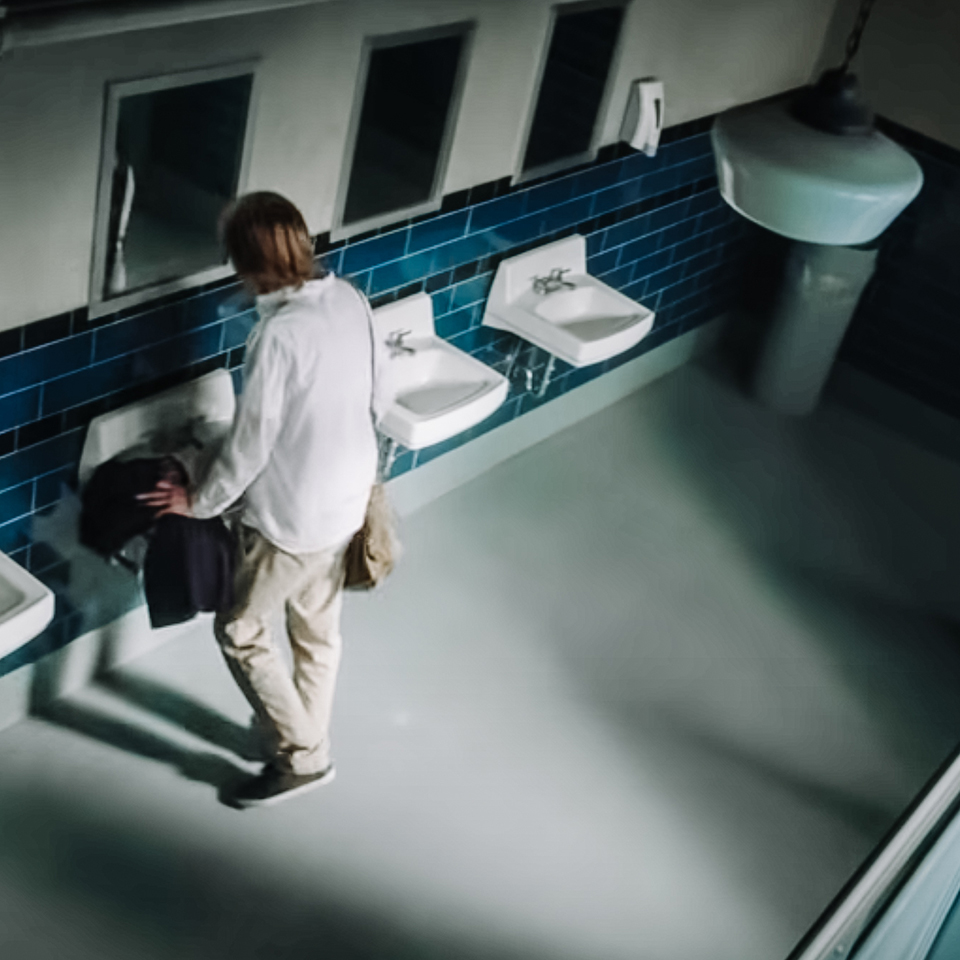Words on Bathroom Walls belongs to a rare breed of films these days. It is a teen drama that is neither melodramatic nor facile. It is a story of mental illness that induces neither despair nor sentimentalism. It is also an examination of the mind and body that defers to a third partner, the soul. It depicts the family and the Church as flawed institutions, but also puts them forward as the best available options for real growth and healing.
Directed by Thor Freudenthal, with a screenplay by Nick Naveda based on the popular YA novel by Julia Walton, Words on Bathroom Walls stars Charlie Plummer as Adam, whose plans to go to culinary school are in jeopardy after a psychotic break and a diagnosis of schizophrenia. His mother and her live-in boyfriend, played by Walton Goggins, send him to St. Agatha’s, a Catholic school, to finish out his senior year after his public high school will not let him return. A despondent Adam tells the principal, Sister Catherine, “The only person who can’t reject you is Jesus, right?” His comment makes all the adults in the room uncomfortable; but Adam is never proved wrong. And as it happens, there are a lot of other people around Adam who won’t reject him either.
Freudenthal, whose previous directing credits include Diary of a Wimpy Kid and Percy Jackson: Sea of Monsters, has a particular gift for depicting a young person’s mind on screen. In Words on Bathroom Walls, he excels at the added challenge of depicting the personalities in Adam’s head, as well as the cloud of confusion Adam navigates while on various medications. At times, Freudenthal’s portrayal of schizophrenia evokes Terry Gilliam’s depiction of hallucinogenic drug use in Fear and Loathing in Las Vegas. It’s a deft use of CGI that is terrifyingly real; but unlike watching Johnny Depp’s discomfiting mad turn as Hunter S. Thompson on LSD, Words on Bathroom Walls evokes compassion for Adam and the many people in our real world who live with mental illness.
Adam soon finds a new lease on life at St. Agatha’s in his tutor and love interest, Maya, played by the superb young actress Taylor Russell. Maya seems to have it all, and possesses a deep well of compassion, but she has her own secrets too.
The young man soon discovers that the information he shares with his psychiatrist is being passed on to his mother. Even though Adam is not Catholic, he plops himself down in the confessional one day and finds a completely different world, and a new source of fatherly love, in the character of Fr. Patrick, played by Andy Garcia. Adam tells Fr. Patrick he doesn’t believe in God, but Fr. Patrick offers counsel and absolution anyway. The next morning, Adam wakes up with a sense of peace he has not known since his schizophrenia first manifested itself. He is inspired to welcome Maya into a kind of communion, opening up about his love of food and his desire to be a chef.
Despite his psychiatrist’s breach of confidentiality, Adam must continue to go to his appointments as a condition of his admission to St. Agatha’s. The contrast between the cold, unreliable world of the doctor’s office comes into sharp relief with the listening ear and generosity of spirit of Fr. Patrick. Knowing nothing of Adam’s schizophrenia diagnosis, Fr. Patrick recommends prayer, and tells Adam on a second visit to the confessional, “It’s gonna take real work to stay sane.”
Eventually Adam’s problems get worse. He falsely perceives more betrayal at home, and his promising start at St. Agatha’s begins to come off the rails. There are difficult scenes to watch as Adam descends into darkness; but here the background of Julia Walton’s original novel shines through. Disturbed by the 2012 massacre at Sandy Hook Elementary School in Connecticut, perpetrated by a schizophrenic young man, Walton wanted to show how even a deeply disturbed (and disturbing) person could be transformed by the power of love.
Catholics who watch Words on Bathroom Walls will be glad to see an agent of the Church wielding healing grace for Adam. On the brink of a desperate moment, Adam tells Fr. Patrick, “What I’m dealing with can’t be fixed, Father.” Maybe so; but maybe it isn’t the end of the world either. And maybe it isn’t a burden to carry alone. In the lowest moment of his life, Adam realizes he not only has a support system for his current crisis, but companions for the long journey ahead.
Words on Bathroom Walls is excellent but not flawless. It is about twenty minutes too long, and Goggins’ character, given a short shrift for much of the film, is oddly prominent at the end. The character of Sister Catherine is a bit of a caricature. On the whole, however, Words on Bathroom Walls succeeds in depicting an array of characters and themes that most films either bungle or ignore. Also noteworthy is the almost total absence of the use of smart phones and individual screens in the movie, perhaps subtly suggesting that we could all focus more on our mental and spiritual health if we detached.
I finished watching Words on Bathroom Walls hoping for more content like this in the future: a soulful, compact alternative both to big-screen superhero movies and endless episodes of streaming content. Freudenthal’s film also provides a depiction of humanity that Catholics should leverage more often for evangelistic purposes. The troubled young Adam, like his biblical namesake, is an extreme version of all of us: broken, and redeemable.
Words on Bathroom Walls opens in theaters nationwide on August 21.
